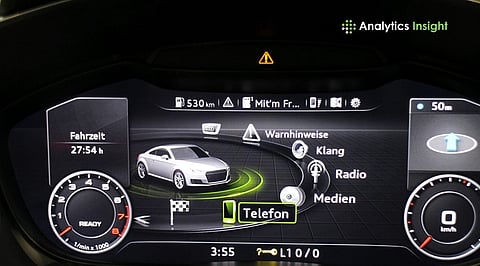

Automotive applications are software programs that run on vehicles or interact with vehicle systems. They can perform various functions, such as controlling the engine, brakes, lights, or infotainment, or providing navigation, diagnostics, or safety features. Automotive applications are becoming more complex and sophisticated, as vehicles are becoming more connected, autonomous, and intelligent. In this article, I will introduce you to some of the best programming languages for automotive applications. These include:
C and C++ are the most widely used programming languages for automotive applications. They are low-level languages that offer direct access and control over the hardware and system components. They are also compiled languages that produce fast and efficient executable code. C and C++ are suitable for developing applications that require high performance, reliability, and compatibility, such as engine control, brake control, or driver assistance systems.
However, C and C++ also have some drawbacks, such as being prone to memory leaks, buffer overflows, and pointer errors, which can compromise the safety and security of the vehicle. Moreover, C and C++ are not very easy to read, write, or maintain, as they have complex syntax, semantics, and features. Therefore, programmers need to follow strict coding standards and use tools and frameworks that can help them avoid or detect errors and bugs.
Python is a high-level, interpreted, and general-purpose programming language that is known for its simplicity, readability, and versatility. Python is suitable for developing applications that require rapid prototyping, data analysis, machine learning, or web development, such as navigation, diagnostics, or infotainment systems.
Python has many advantages, such as having a large and active community, a rich and diverse set of libraries and modules, and a flexible and dynamic nature. Python also supports multiple paradigms, such as object-oriented, functional, or procedural programming, which can help programmers express their ideas and logic more easily and clearly.
Java is a high-level, compiled, and object-oriented programming language that is widely used for developing cross-platform and network-based applications. Java is suitable for developing applications that require portability, scalability, or interoperability, such as telematics, cloud, or mobile applications.
Java has many benefits, such as being platform-independent, meaning that it can run on any device or system that has a Java Virtual Machine (JVM). Java also has a large and mature ecosystem, consisting of various tools, frameworks, and libraries that can help programmers with various tasks and challenges. Java also has a robust security model, which can help protect the vehicle and its data from malicious attacks.
MATLAB is a high-level, interpreted, and domain-specific programming language that is designed for numerical computing, data analysis, and visualization. MATLAB is suitable for developing applications that require mathematical modeling, simulation, or testing, such as control systems, signal processing, or image processing.
MATLAB has many strengths, such as having a user-friendly and interactive environment, a powerful and expressive syntax, and a comprehensive and specialized set of functions and toolboxes. MATLAB also supports multiple paradigms, such as procedural, functional, or graphical programming, which can help programmers solve different types of problems and tasks. MATLAB also has a strong and established presence in the automotive industry, as it is widely used by engineers and researchers for developing and testing their algorithms and models.
Rust is a low-level, compiled, and multi-paradigm programming language that is designed for performance, reliability, and productivity. Rust is suitable for developing applications that require speed, safety, or concurrency, such as embedded systems, operating systems, or parallel computing.
Rust has many advantages, such as being fast and efficient, as it produces native and optimized executable code. Rust also has a unique and innovative feature called the ownership system, which ensures memory safety and prevents common errors such as memory leaks, data races, or null pointers. Rust also supports multiple paradigms, such as imperative, functional, or concurrent programming, which can help programmers deal with complex and diverse problems and tasks.
Join our WhatsApp Channel to get the latest news, exclusives and videos on WhatsApp
_____________
Disclaimer: Analytics Insight does not provide financial advice or guidance. Also note that the cryptocurrencies mentioned/listed on the website could potentially be scams, i.e. designed to induce you to invest financial resources that may be lost forever and not be recoverable once investments are made. You are responsible for conducting your own research (DYOR) before making any investments. Read more here.
